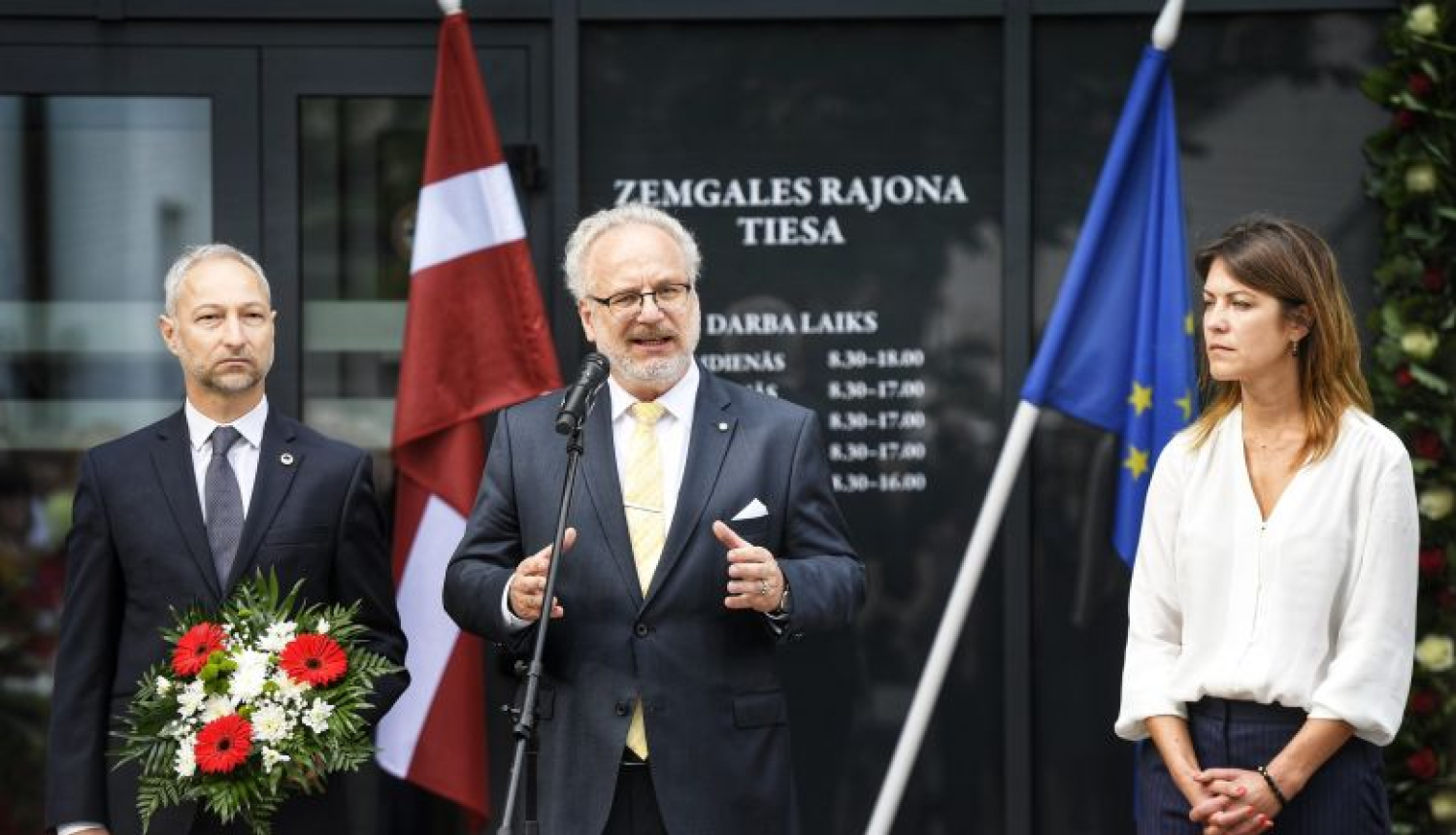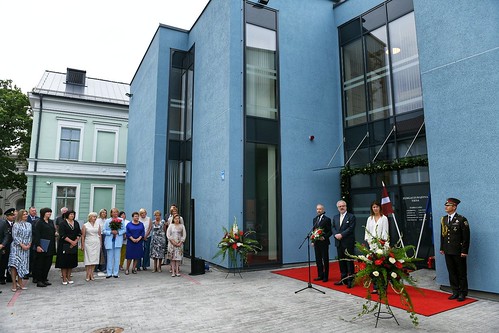Dear friends,
I
If a suit fits a man very well, the man feels good and can work well.
I must say that it can be referred to a building as well. If the building and the premises are suitable, then you feel good. In the morning, you go to work joyful and start doing your job. Therefore, it is very important that the working environment is also suitable for working. For judges, this working environment is specific. Therefore, the building must also be specific and suitable for the judges.
This building is modern and meets all the safety preconditions for a good working environment, which must be ergonomic and meet the rules stipulating whether the working environment fits human needs. I think it is so and that this is one of the most modern building because it is the newest built here in Tukums.
II
Tukums is associated with rights and courts, but Tukums is also one of the cradles of democracy in Latvia indirectly. During the 1905 Revolution, a democratic movement emerged here that was trying to establish national autonomy. Two families of well-known and decisive democrats have lived here: the family of Zigfrīds Anna Meierovics who was born and attended school nearby and considered Tukums as his exact place. The second family were Kalniņi, social democrat Pauls, Klāra, and Bruno Kalniņš. All four personalities mentioned before were founders of our country and members of the Constitutional Assembly. I had the honour of meeting Bruno Kalniņš in the late 1980s.
III
I would like to thank everyone who has been involved in judicial reform. Improving buildings is a part of the judicial infrastructure reform. Therefore, I would first like to thank all the judges, especially Chairperson of the Zemgale Regional Court Inguna Preisa, who has motivated judges not only in Zemgale but also perhaps even throughout Latvia. Thank you!
I would also like to thank Chairperson of the Tukums Regional Council Ēriks Lukmans for his support in the construction and establishment of this building. This house will adorn the town of Tukums.
I would also like to thank the employees of the Ministry of Justice who have carried out this comprehensive reform, including such infrastructure measures. My thanks to Minister of Justice Jānis Bordāns, State Secretary of the Ministry of Justice Raivis Kronbergs for their organisational work, and to my current Adviser on Issues of Rule of Law and EU Legal Policy Irēna Kucina for leading this reform at the Ministry of Justice for many years. Thank you and thank you to everyone who participated in the execution of the reform!
IV
Judicial reforms are of two kinds: organisational reforms and procedural reforms.
Organisational reforms must be carried out all the time. It is not a one-off reform that will have an effect for a hundred years. It is about infrastructure, which needs to be improved and renovated constantly, including this building. The organisation of work must be adapted to new situations constantly. The organisation of the work of judges is very specific, and the relevant changes must be taken into account. These are organisational reforms that must be carried out on an ongoing basis, and the Ministry of Justice, together with the courts, pays constant attention to those reforms. In this case, the Ministry cooperates with the Zemgale Regional Court and all other courts located here, as well as, of course, the people who will work in this building.
Secondly, there are also procedural reforms concerning the court. Unlike organisational reforms, procedural reforms do not have to be constant, as they must strive for finding the optimal process. Once found, it can work for a hundred years. For example, procedural laws were adopted in the mid-19th century in France and at the end of the 19th century in Germany, and they still function with very little change. When we find the right fair procedure in the way that justice is handled, it is lasting longer. In its turn, when we build such a building or organise the work of judges, we must constantly follow whether something needs to be improved or developed. These are constant reforms.
V
Dear colleagues,
I am very pleased to be among real lawyers and judges. I feel at home here, among you. From my 25-years long experience as a judge, I would say that it does not really matter in which court somebody works. The work of a judge is always very similar in all courts. Things are different, cases are different, but the way a judge works is about his or her personality. I think that if I spoke to a person with my eyes closed for about five or ten minutes, maybe one minute, I could tell right away whether he or she was a judge or not. I think it would be the same for you.
Thank you very much and I wish you excellent working in this building!





